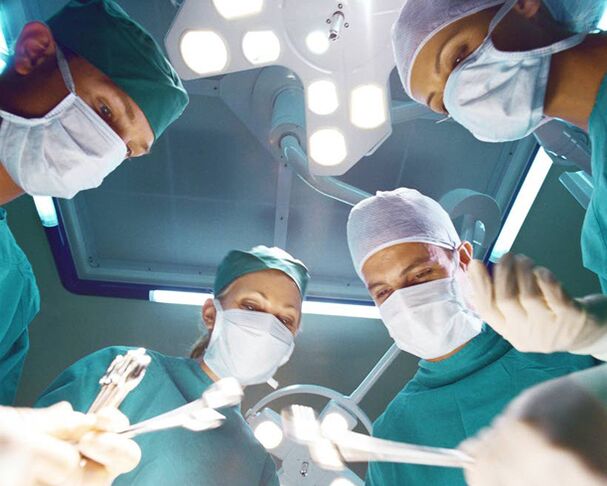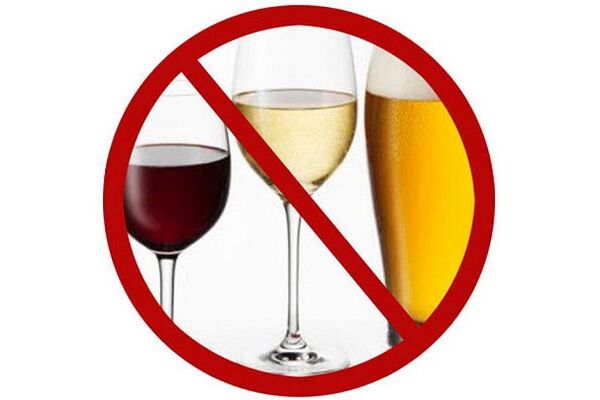Surgery is a serious manipulation that needs to be properly prepared for. All recommendations on this issue should be made by a professional.
After surgery, special attention should be paid to diet and alcohol consumption. In fact, in some cases, even small amounts of ethanol in alcoholic beverages can be harmful to health or even life.
In order not to damage your own body and contribute to its early recovery, you should follow the advice in this article.

Are anesthesia and local anesthesia compatible with alcohol?
Everyone needs to understand that anesthesia and alcohol are incomparable concepts. And there are good reasons for that. First, let’s figure out what types of anesthesia there are - these are local and general anesthesia.
Anesthesia is the delivery of a drug to the human body that promotes the temporary loss of tissue sensitivity. There is a blockage in the transmission of nerve impulses, as a result of which signals do not enter the brain and there is no reverse reaction. Therefore, a person does not feel painful feelings during surgery.
Local anesthesia has a defined duration. Usually this is the time for the operation and an additional 2-3 hours. A person gradually leaves anesthesia, but after local anesthesia, alcohol can lead to its effects ending immediately. And it can cause pain that is quite difficult to remove with the help of medications.
Can I drink alcohol after anesthesia (general)? This is not worth doing, as it can lead to much more serious consequences than in the previous case:
- Severe pain at the site of surgery.
- Muscle tissue tension or weakening.
- Headache, dizziness.
- Nausea, vomiting and consequent dehydration.
- Anaphylactic shock.
- Disorders of the nervous system.
Alcohol consumption after surgery and its possible consequences
Doctors have no reason to recommend alcohol consumption after surgery. And it’s not about the first day or week after the procedure. The period of abstinence can be several weeks or even months. Its duration depends on the complexity of the procedure performed and the patient's state of health.
Before or at the end of surgery, your doctor will give you some recommendations. They are related to lifestyle, nutrition, alcohol consumption and more. And not only do you give them that way, but to avoid unwanted consequences and complications.
Why it is forbidden to drink alcohol after surgery:
- Use of alcohol-incompatible anesthesia. Otherwise, there could be a huge blow to health, which could affect the functioning of systems and vital organs.
- Prescribing antibiotics for postoperative rehabilitation. They are also not compatible with alcohol. Moreover, even at the end of taking them, it is worth giving up strong drinks for at least a week. Otherwise, their effects can be minimized.
- Poor tissue healing. This can be provoked by drinks that cause fermentation processes in the body. It could be beer. Therefore, it is better to reject.
- Weakening of the body's defenses. If you start drinking alcohol the day after surgery, you can hit your immune system. The result will be an exacerbation of latent diseases or chronic pathologies.
- Blood clotting disorder. A small dose of ethanol entering the body can cause internal bleeding and poor and long-term healing of the affected skin.
In addition, some surgical interventions mean a complete rejection of the use of ethanol in any form. Because it can cause significant damage to the body and affect the quality of human life in the future.
Experts agree that after surgery, the body needs time to recover. To do this, you need to create the right conditions - follow the right diet and give up alcohol completely for at least 30 days.

Estimated timing of postoperative alcohol consumption
As already mentioned, the duration of alcohol consumption depends on the patient's state of health and the complexity of the operation performed. Therefore, it is difficult to clearly define the period after which it can be used. And the doctor should make any recommendations on this matter to whom to turn with this question.
How long can you drink alcohol after surgery (approximate conditions):
- Alcohol after laparoscopy - in some cases it can be completely banned. This is due to the fact that after laparoscopy, people are forced to take certain medications throughout their lives to maintain the body normally. Almost all of them are incompatible with alcohol. When removing the gallbladder, the alcohol should be completely removed. You can afford a little alcohol a month and a half after the laparoscopy in the gynecology department.
- The timing of alcohol consumption after laparotomy is the same as in the previous case.
- Beverages containing ethyl alcohol should be handled with extreme caution after heart surgery. They should not be abused as this can cause serious problems - heart failure, stroke, heart attack. If there are no complications after surgery, the alcohol can be administered no sooner than 3-4 weeks after surgery.
- The optimal duration of abstinence from alcohol after eye surgery is 3 months. This time is enough for complete healing or pain relief. Why 3 months? The situation is that in most cases the rehabilitation period lasts 1-3 months. Patient recovery drops or tablets are then prescribed, and almost all of them are incompatible with alcohol.
- Plastic surgery - it is recommended to stop drinking alcohol for 2-4 weeks. If any complications occur or the patient is prescribed a rehabilitation course, it can take up to several months.
- It is not recommended to drink alcohol at all after removing the pancreas. Especially in the first 2-3 years after surgery.
- Removal of appendicitis - alcoholic beverages are strictly prohibited for 3 weeks, as are certain foods.
- Surgery to remove the tumor - alcohol is only taken with your doctor’s permission. In fact, to restore the body, they may be prescribed medications that are forbidden to take with alcohol.
All of the above conditions are conditional and are determined solely by your doctor. Before taking another dose of alcohol, it is worth remembering the risk to the body. After surgery, it weakens, needs to be restored, and the recommendations given by the specialist are followed. Therefore, do not overload with ethanol, which will significantly extend the rehabilitation period.
























